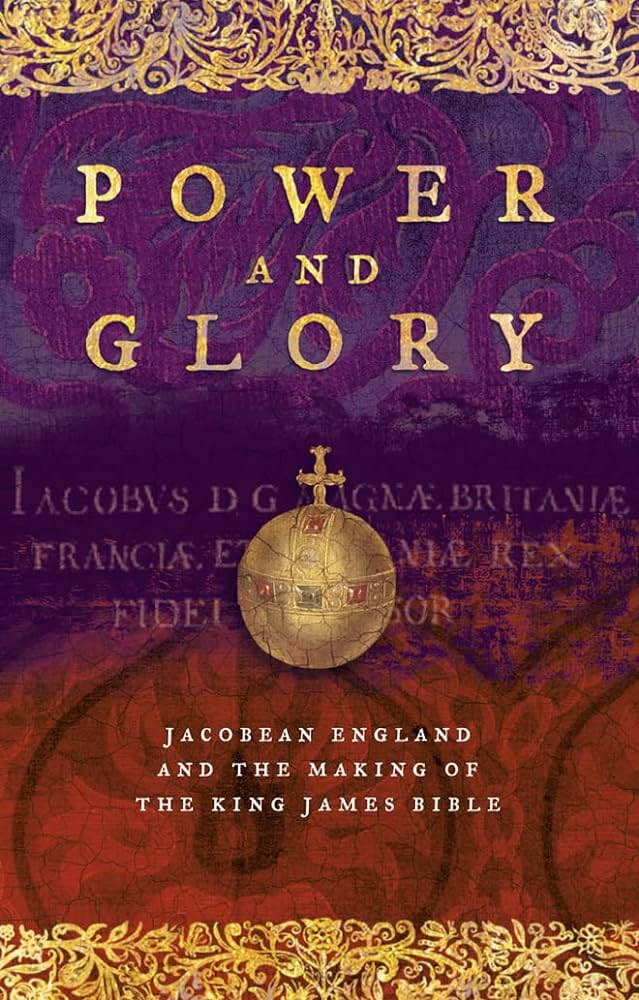
Power and Glory - Jacobean England and the Making of the King James Bible
Harper Collins Publishers, 2003. Dustjacket spine faded, with minor wear at extremities, foxing and yellowing of pages at edges.
James VI of Scotland - James I of England - came into his new kingdom in 1603. Trained almost from birth to manage rival political factions, he was determined not only to hold his throne, but to avoid the strife caused by religious groups that was bedevilling most European countries. He would hold his God-appointed position and unify his kingdom. Out of these circumstances, and involving the very people who were engaged in the bitterest controversies, a book of extraordinary grace and lasting literary appeal was created: the King James Bible. Scholars from Cambridge, Oxford and London translated the Bible, drawing from many previous versions, and created what many believe to be one of the greatest prose works ever written in English - the product of a culture in a peculiarly conflicted era. This was the England of Shakespeare, Marlowe, Jonson and Bacon; but also of extremist Puritans, the Gunpowder plot, the Plague, of slum dwellings and crushing religious confines. Quite how this astonishing translation emerges is the central question of this book...
